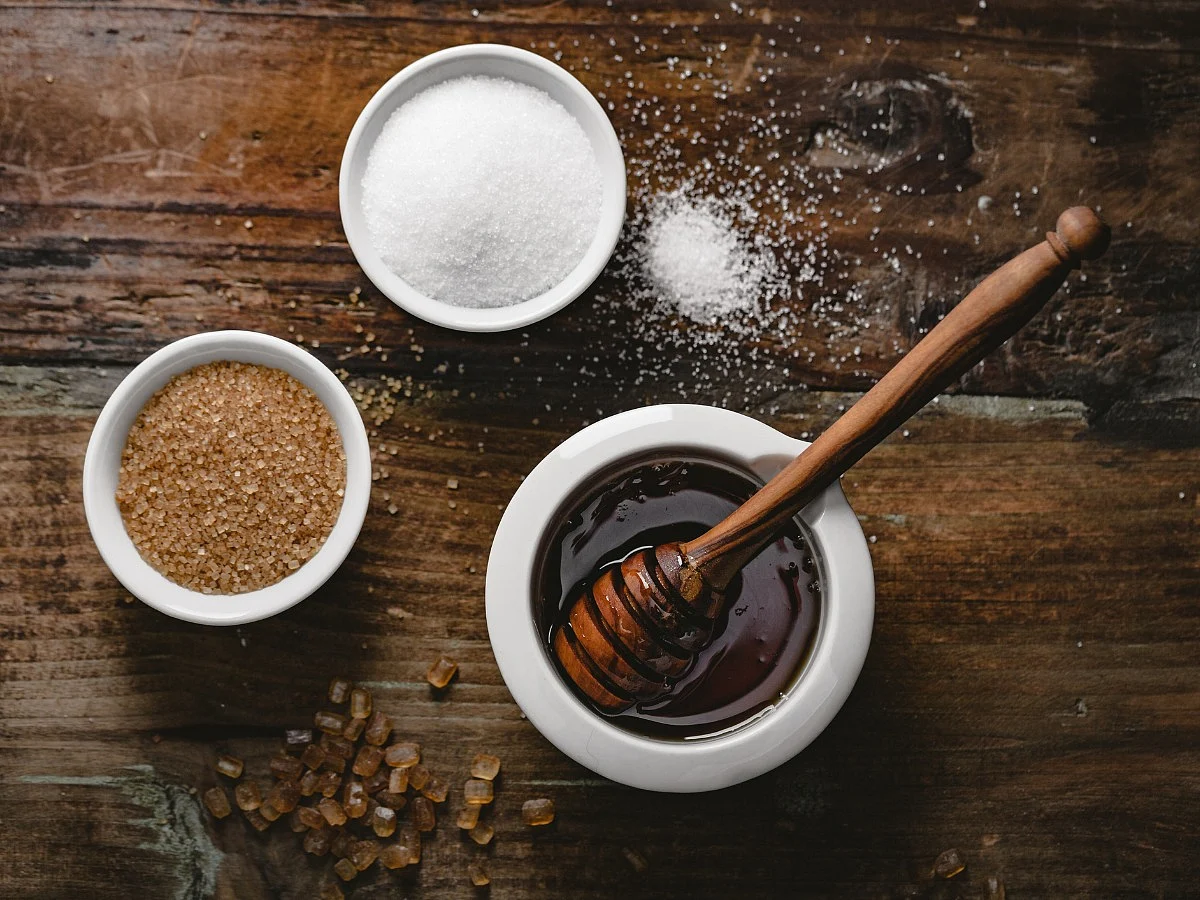Honey vs Sugar: Composition, Benefits, Side Effects and More
Know what is more healthy, honey or sugar with the help of benefits, similarities and uses.

advertisement
Honey and sugar are two common sweeteners used by people widely. though sugar is looked down for its unhealthy ingredients and effect on the body. But is honey really worth the hype it receives? Today, in this article, we will be discussing about the similarities, side effects, and benefits of sugar and honey so that you know better and can make your choice wisely.
Honey and sugar are both carbohydrates and consists of the two types of sugar: glucose and fructose. Refined fructose found in sweeteners is metabolized by the liver and has been linked to long term diseases like obesity, fatty liver disease, and diabetes.
The body can quickly break down both fructose and glucose thus causing spikes in blood sugar levels. Though one should know that the proportions of glucose and fructose in honey and sugar are different:
sugar is 50 percent fructose and 50 percent glucose
honey is 40 percent fructose and 30 percent glucose
The remaining ingredients of honey are water, pollen, minerals like magnesium and potassium. These ingredients make honey a healthy option in the eyes of the people.
Sugar has higher glycemic index (GI) than honey. It means that it raises blood sugar levels more quickly as compared to honey. This is due to its higher fructose content and the absence of minerals. But honey has more calories than sugar.
Honey vs Sugar: Benefits
Honey has been used for years both as a sweetener and medicine. It is a liquid produced by honeybees and differs in color from straw yellow to dark brown. Benefits of honey include:
Honey varies in its nutritional value depending on the origin of the nectar. It also contains trace amounts of nutrients like: amino acids, antioxidants, enzymes, minerals, vitamins. and raw honey is edible and contains more antioxidants and enzymes than pasteurized varieties.
Honey is a used as natural remedy to ease cough in children. It can give relief to children suffering from bronchitis.
Honey is also a great remedy for allergies. Research proves that locally-produced honey can help reduce seasonal allergy symptoms. It mat be due to honey’s antioxidant and anti-inflammatory benefits.
Honey has antimicrobial properties that promotes wound healing and can be used as a natural and safe treatment of chronic wounds, ulcers, and burns.
Raw honey can be used for Seborrheic dermatitis since it helps improve seborrheic dermatitis and get rid of itchy and flaky scalp condition.
Honey is also easier to digest due to its composition, the sugars in honey are already partially broken down, making it easier to digest.
Sugar comes from sugarcane or sugar beet but sugar requires a lot of processing before it becomes the finalized product. There are different types of sugar like: brown, muscovado, powdered, raw, turbinado, and white. The main benefits of sugar use include:
Sugar contains 49 calories per tablespoon, which is lesser than honey since honey has 64. Honey is sweeter than sugar.
Sugar is cheaper and easily accessible . It has a long shelf life and helps makes many foods more palatable. Raw and pure honey is difficult to find and may be costly and not affordable.
Honey vs Sugar: Disadvantages
Honey is high in calorie count that makes it a bad choice over sugar at times. One tablespoon of honey contains 64 calories while sugar has 49 calories per tablespoon.
Honey is not safe for consumption for infants younger than 12 months as honey’s bacterial spores can cause infant botulism, a rare but potentially life-threatening disease.
Honey has similar effects as sugar on blood glucose levels and it can be problematic for people with diabetes and insulin resistance. Higher consumption of honey can increase the risk of weight gain, type 2 diabetes, heart disease, etc
Sugar has higher glycemic index than honey thus it can spike blood glucose levels faster than honey leading to quick spurt of energy, followed by a sharp decline causing tiredness, headaches, and difficulty concentrating.
Weight gain and obesity are common problems linked with high sugar consumption and since liver needs to metabolize refined sugar, sugar intake can result in liver-related problems like nonalcoholic fatty liver disease (NAFLD), cholesterol management, and obesity.
High sugar consumption causes cavities to develop faster and in more teeth.
Sugar rich diet can also affect the gut health since sugar rich foods promote the growth of unhealthy gut bacteria increasing the risk of chronic diseases.
Sugar is more difficult to digest since it does not contain the enzymes that honey does.
(At The Quint, we question everything. Play an active role in shaping our journalism by becoming a member today.)